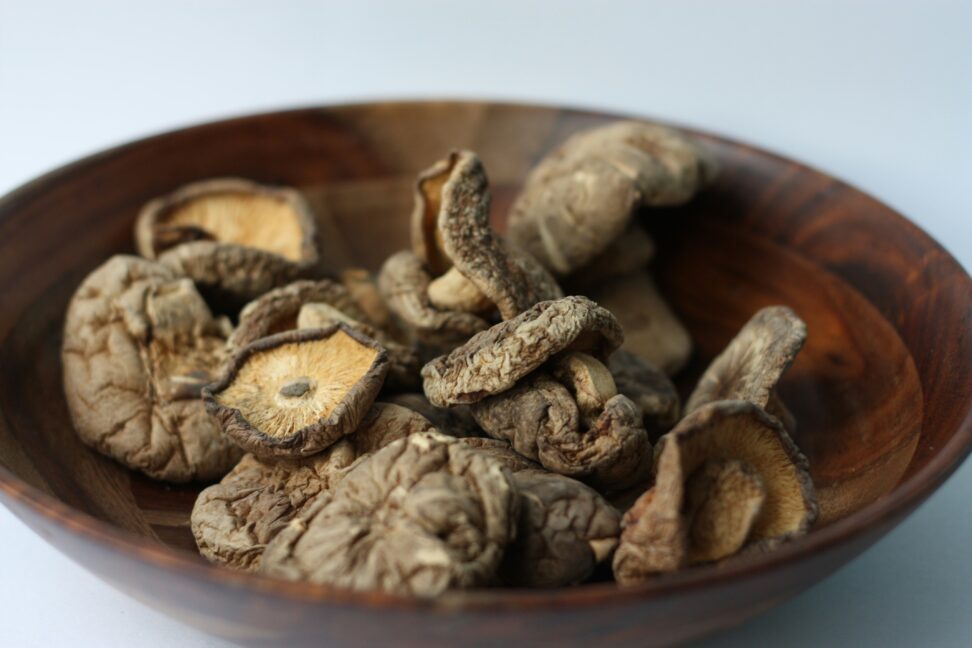Where did the summer go?! With the new school year starting, the schedule usually becomes busier and more stressful for everyone. There’s the added stress on our bodies of the usual start-of-the-school-year germs running around. Wouldn’t we all like to have our minds and bodies hold up better during this time of year?
Well, let’s talk about adaptogens. They aren’t a magic bullet, but they do support our health and well-being. Probably without realizing it you’ve heard of some, like mushrooms or ginseng, but here’s a helpful definition.
Adaptogens are plants and mushrooms that help your body respond to stress, anxiety, fatigue and overall wellbeing. You can take adaptogens by adding them to food or beverages or take them as tinctures. Adaptogens bring your body back to a steady balance by managing both physical and mental stressors.
How Do Adaptogens Help Your Body?
Let’s say your family suffers from colds each school year. After double checking with your health practitioner regarding the right ages for introducing adaptogens to your children, you can use adaptogens that support everyone’s immune system, like Tulsi (aka, “holy basil”) that is often made into tea or reishi mushrooms that are often consumed as “capsules, tinctures, teas, and powders,” quoting What Are Adaptogenic Mushrooms? Benefits, Risks, and Types.
To summarize how adaptogens work, here’s a quote from Forbes’ Your Guide To Adaptogens:
Researchers say adaptogenic herbs interact with the hypothalamic-pituitary-adrenal (HPA) axis, which is a complex system of glands, hormones and receptors in the human body. The HPA axis is central to the body’s homeostasis, stress responses and energy metabolism.
When we consume adaptogens, their organic properties and compounds work with the HPA axis to help balance our systems. If there’s too much of one hormone, for instance, the adaptogens help to lower it. On the flip side, if there isn’t enough of a hormone, adaptogens can help replenish its levels.
Studies also suggest adaptogens interact with the immune-neuro-endocrine system, which helps the body regulate its use of energy and maintain strong immune defenses.
The above quoted article also includes a list of some of the top adaptogens, listing their uses and backgrounds. For example, when talking about dealing with fatigue, they recommend incorporating Rhodiola (Rhodiola rosea) or Ginseng.
Adaptogens stimulate your body’s natural stress-reduction response, helping support your immune system and regulate stress. I like to think of them as a natural coping mechanism. They can help you stay in the “resistance” phase longer before you give in to the stress effects, like when your kids or grandkids bring home those colds, you’ll be able to withstand them longer and stay healthy.
As you’ve probably noticed from the articles above, adaptogens are literally herbs that you already cook with and often eat. For example, licorice root is a key ingredient in teas or supplements, and it can help those with asthma, indigestion, and even menstrual cramps. We’ve all seen and consumed turmeric, another adaptogen, at some point. Turmeric has been shown to help with depression, hay fever, cholesterol, and gum disease. Turmeric is also well known for it’s support with inflammation in the body. Goji berry has become a more popular adaptogen the last few years. It can help with immune support, skin health, blood sugar, and depression. Like turmeric, it brings some protection against some cancers. Another helpful benefit of adaptogens is sleep support. My favorite is Ashwaganda! An amazing herb that helps with sleep and managing stress. Check out this article for more information.
Find what’s best for you!
Like any supplement, you’ll want to find the best adaptogens for you. I’d recommend working with your medical provider or naturopath. You can rule out any drug interactions, like how ginseng can affect blood thinners, and focus on what type of adaptogen addresses your needs, like immune, sleep, managing stress or breathing support.



![z31[1]](https://simplywholebydevi.com/wp-content/uploads/2018/06/z311-100x100.jpg)












